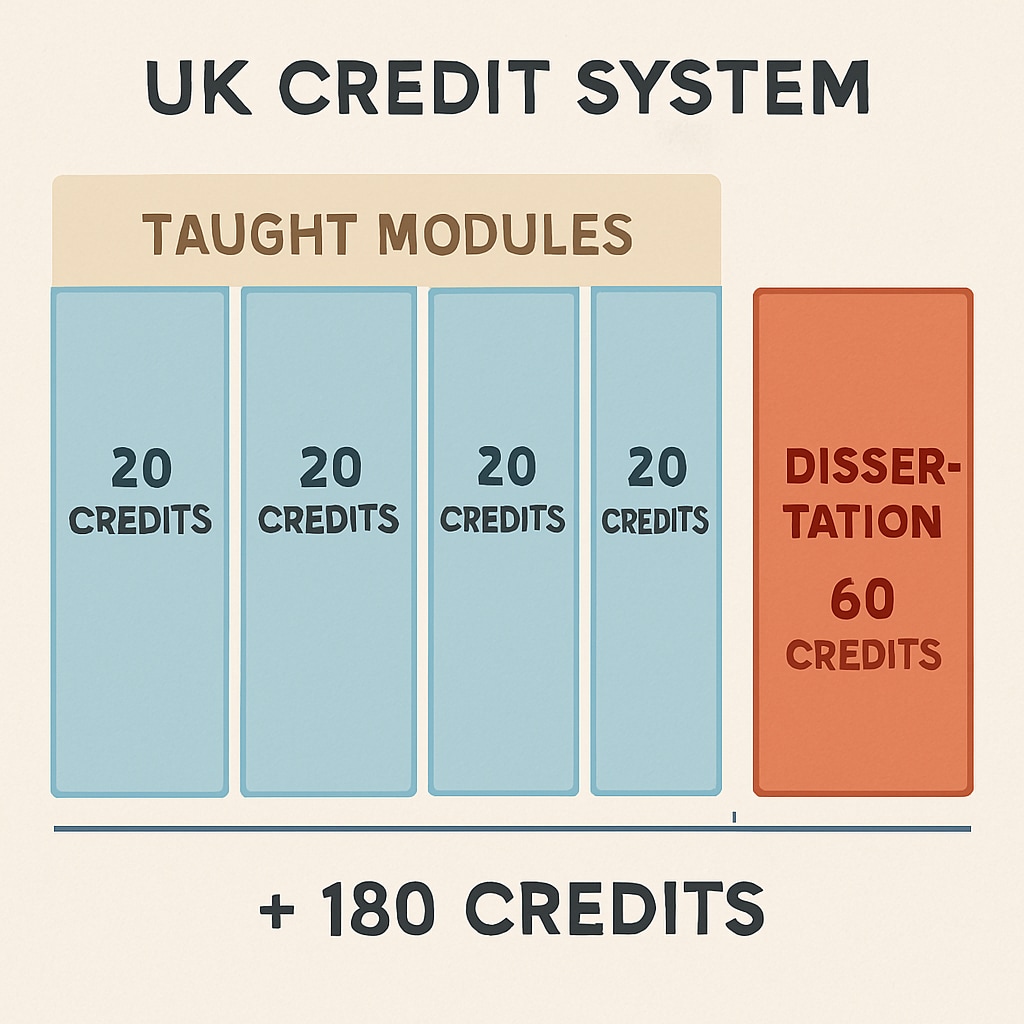Obtaining a UK master’s degree is a goal for many international students, but the process involves navigating stringent academic requirements, including credit recognition after completing the thesis. The UK’s higher education system emphasizes a credit-based structure that ensures academic rigor. However, this structure can sometimes pose challenges, particularly for international students unfamiliar with its nuances. This article delves into the specifics of UK master’s degree credit requirements, the hidden hurdles surrounding thesis completion, and practical strategies to overcome these challenges.
Understanding UK Master’s Degree Credit Requirements
In the UK, most master’s degree programs require a total of 180 credits, divided into taught modules and a dissertation (also called a thesis). Typically, taught modules account for 120 credits, while the dissertation contributes the remaining 60. These credits align with the European Credit Transfer and Accumulation System (ECTS), ensuring compatibility with other European education systems. For example, 180 UK credits roughly translate to 90 ECTS credits.
While the system appears straightforward, complexities often arise when students transition from the taught phase to the dissertation phase. For instance, students must pass their taught modules before embarking on their dissertation. Failure to meet the required standard in taught modules can delay graduation, necessitating additional coursework to make up for lost credits.

Challenges of Credit Recognition After Thesis Completion
Completing the dissertation is a significant milestone, but it doesn’t automatically guarantee the award of a master’s degree. Some international students encounter unexpected challenges in credit recognition after finishing their thesis. For instance:
- Academic Rigor: The dissertation must meet stringent academic standards, and failure to achieve a passing grade may require revisions or, in some cases, resubmission.
- Unrecognized Credits: Certain universities mandate additional learning modules if they find discrepancies in a student’s overall academic performance, even after a successful dissertation.
- Time Constraints: International students on visas may face challenges in completing additional modules within their visa duration.
As a result, students must be proactive in understanding their program’s requirements and seek guidance from academic advisors when uncertainties arise.

Comparing UK and Other Countries’ Master’s Degree Standards
When compared to other countries, such as the US or Australia, the UK master’s degree stands out for its shorter duration—typically one year. However, this intensive structure demands greater focus and time management. In contrast, master’s degrees in the US often span two years, allowing more time to accumulate credits and complete research work.
Another notable difference is the emphasis on independent research. While many countries integrate research and coursework throughout the program, UK universities often treat the dissertation as a standalone component, requiring students to apply their knowledge independently. This distinction can be overwhelming for international students accustomed to a more guided approach.
Practical Tips for Prospective UK Master’s Students
To navigate the hidden challenges of credit recognition and thesis completion, international students can follow these practical tips:
- Understand Credit Requirements Early: Familiarize yourself with your program’s structure, including the weightage of taught modules and the dissertation.
- Seek Support: Utilize university resources, such as academic advisors and writing centers, to stay on top of assignments and dissertation requirements.
- Plan for the Dissertation: Begin exploring potential topics and research areas early to avoid last-minute stress.
- Stay Informed About Visa Regulations: Ensure your study plan aligns with your visa’s validity period, especially if additional modules are required.
By being proactive and well-prepared, students can mitigate the risks associated with credit recognition and successfully achieve their academic goals.
In conclusion, while a UK master’s degree offers a prestigious and globally recognized qualification, it also demands a high level of academic commitment. Understanding the credit requirements and preparing for potential challenges in thesis completion can make the journey smoother and more rewarding.


